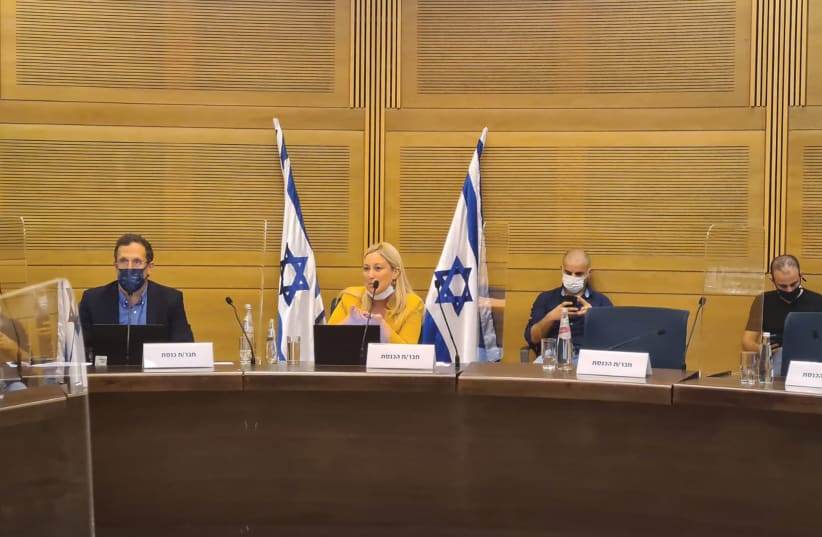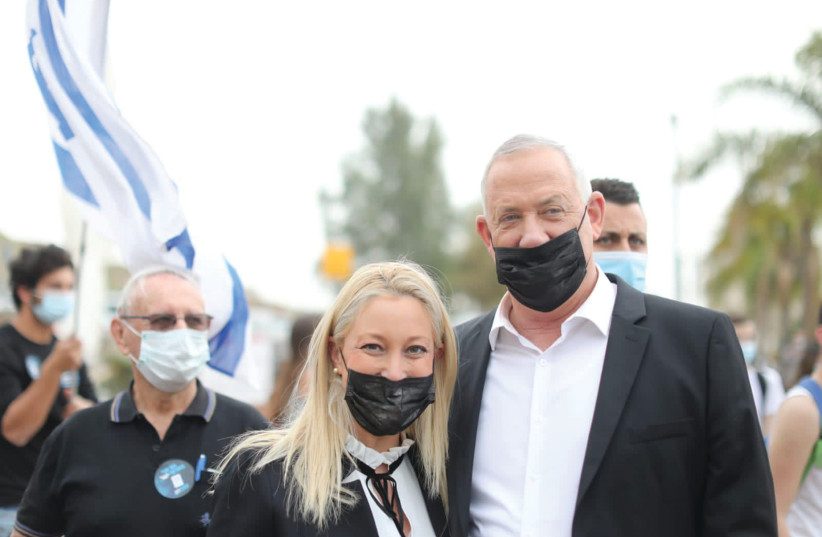Ruth Wasserman Lande is currently a member of Knesset belonging to the centrist Blue and White Party headed by the Defense Minister Benny Gantz.
As a positive and determined thinker, she believes that “The difficult we do immediately; the impossible takes a little longer.” In fact, she lives by the mantra adopted by the founder of the State of Israel, David Ben-Gurion, “He who does not believe in miracles in unrealistic.” Simultaneously, the word “caution” plays a significant role in her rhetoric and actions.
Consequently she very much values compromise and coalition-based politics, should circumstances allow.
Ruth’s parents left Lithuania in the early 1970s and immigrated to Israel, where Ruth was born. After a number of years in Israel, her family moved to South Africa. Because of her great admiration of Israel, when Ruth was only 17, she left her family and came back, on her own, to live in Israel.
Not too long after her immigration she was drafted by the IDF. After some time (and effort) Ruth was accepted to the Research Department of the IDF Directorate of Military Intelligence.
After having completed her military service as an officer and a captain, Ruth was accepted by the Foreign Ministry. After having studied Arabic, she was stationed in Egypt and during part of her three years there, served as deputy ambassador. Since then Ruth has been focused on improving Israeli-Arab relations.
After having returned to Israel, Ruth served as adviser to president Shimon Peres and later became deputy director general at the Federation of all Local Governments in Israel. As part of her activity, she helped a number of local authorities receive foreign investments to finance major urban projects. She also liaised between philanthropists and local leaderships in order to empower women in the periphery in general and Arab women in particular. Ruth became instrumental in creating and forwarding sustainable sources of income for Arab villages particularly in the North of the country. She did this in order to diversify employment opportunities, lower crime rates and create a sounder and better relationship between the Arab minority in Israel and its mainstream society.
As an MK, Wasserman Lande’s most major focus is to fortify the on-the-ground situation in Israel’s mixed Jewish-Arab cities and to strengthen the trust and cooperation between neighbors. She also focuses on lowering the soaring crime rates on the Arab-Israeli street. Hence, she is currently heading three parliamentary caucuses: one aimed at lowering crime rates in the Arab street; one aimed at reinforcing mixed cities and preventing events such as those that occurred in May 2021 when horrific, unprecedented and extreme violence erupted amidst Jews and Arabs especially in those cities. Lastly, she also heads the Abraham Accords Parliamentary Caucus together with MK Ofir Akunis (Likud).
To Ruth’s very substantial credit, she has managed to persuade the Knesset to take the Arab-Israeli issue quite seriously and to budget security-oriented, welfare-oriented and urban-oriented activity and infrastructure in all of the relevant cities.
Having grown up in South Africa, South African Jews are important to Ruth, as are all Jews throughout the Diaspora. She often addresses Jewish audiences abroad and delegations visiting Israel and represents Israel in various conferences throughout the world.
After having lived abroad (in Egypt, as well as South Africa) for quite a few years, Ruth sees Israel as much more than just a country. For her, it is the safe-haven for Jews throughout the world and the homeland of the Jewish people wherever they may be. Nevertheless, Jewish communities in different parts of the world and their relationship with and to Israel are the key.
The role of such communities is as important to her as those in Israel. Consequently Wasserman Lande emphasizes the need to work on and strengthen that relationship between the Israeli leadership and the leaderships of various Jewish communities all over the world.

